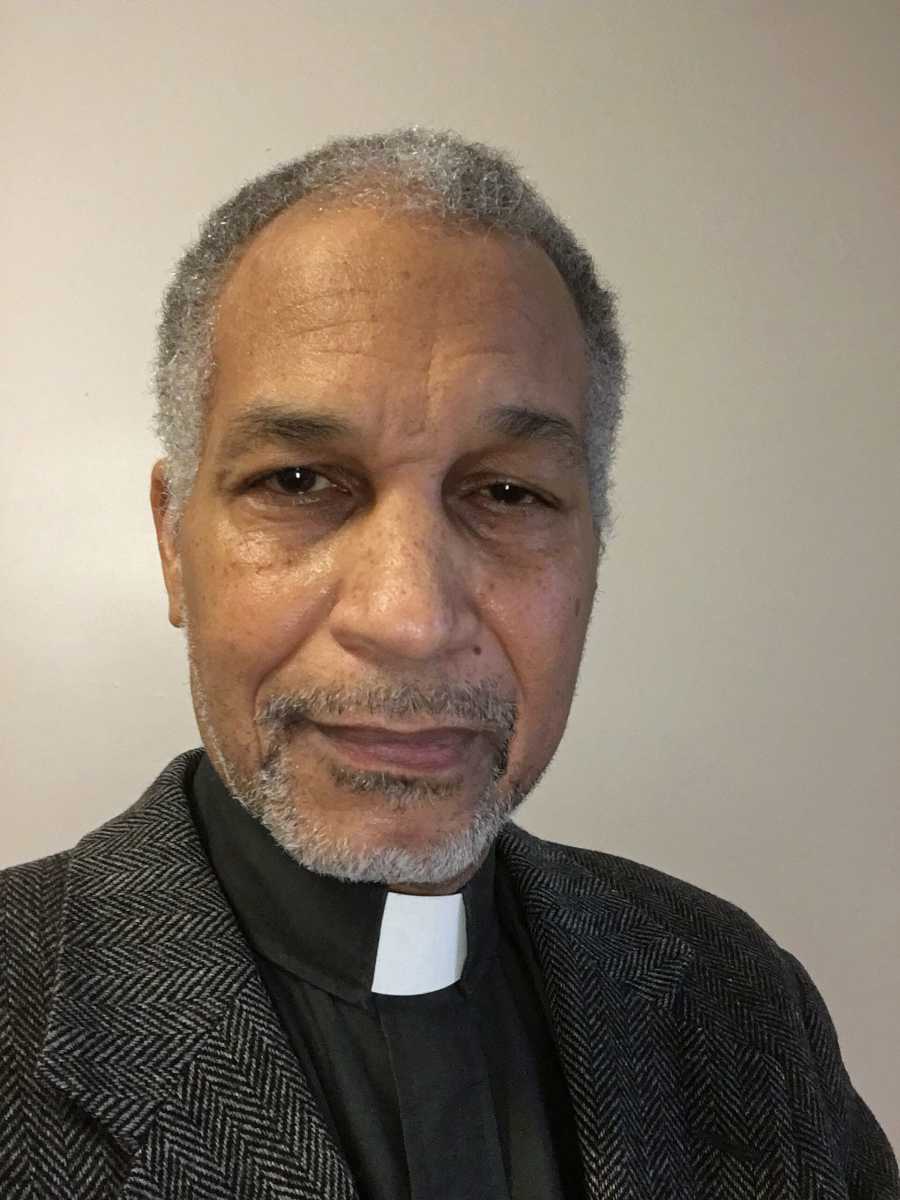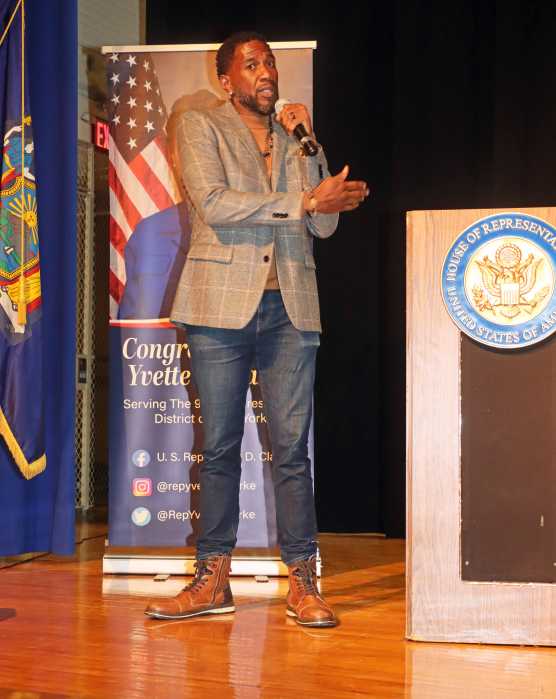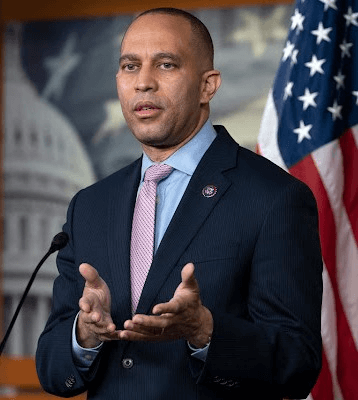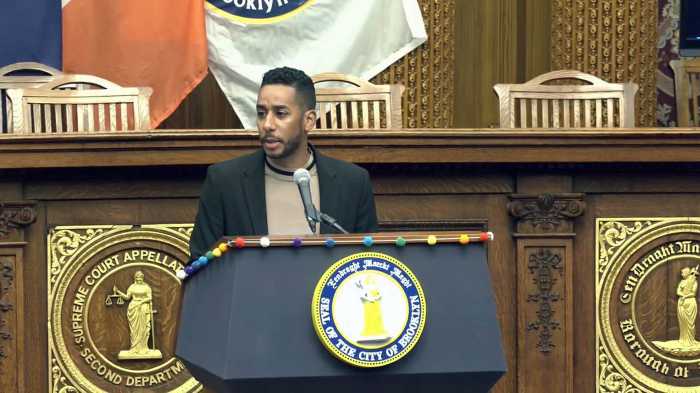A Brooklyn-born, Jamaican-American clergyman is calling for an immediate ceasefire and the “massive infusion of humanitarian aid” amid the Israeli-Hamas war.
“Israel would do well to avoid the errors made by the United States in the emotion of responding,” the Rev. Ian B. Straker, whose late parents, John and Yvonne Straker, were immigrants from Jamaica, told Caribbean Life on Tuesday.
“Now is a good time to start, with an immediate ceasefire and a massive infusion of humanitarian aid,” added Rev. Straker, 66, who has been a clergy member of the New York Annual Conference of the United Methodist Church since 1986.
Rev. Straker – who currently resides in Flushing, Queens, and has pastored United Methodist Churches in Mount Vernon, Yonkers and Brooklyn – said that the Oct. 7 attack on Israeli civilians by Hamas was “heinous and inexcusable, worthy of universal condemnation.
“Whatever the sins of the State of Israel against the Palestinians in Gaza, killing, rape, hostage-taking and torture are not and cannot be justified,” said Rev. Straker, a member of the editorial board of Methodist History, who has published a number of articles in that journal. “We rightfully grieve the over 1,200 dead Israelis and join the call for the immediate safe return of the remaining hostages.
“The intense anger felt by Israelis, heightened by the massive grief and shock generated by the assault, is understandable. The attack could not be ignored or minimized. It demanded a response,” added Rev. Straker, who has taught courses in African American religious history and African religions at Barnard College, Columbia University; Haverford College in Pennsylvania; Princeton University in New Jersey; Wesleyan University in Connecticut; Union Theological Seminary in midtown Manhattan; Howard University School of Divinity in Washington, D.C.; and the Samuel Proctor School of Theology at Virginia Union University in Richmond.
“Targeting those responsible for the attack, both planners and perpetrators, in order to prevent further attacks and hold them accountable for their despicable acts is in keeping with common sense,” continued Rev. Straker, who is currently completing a full-length biography of the early American Methodist Preacher Freeborn Garrettson, while working with the Rev. Dr. James A, Forbes, Jr., as a staff member of the Healing of the Nations Foundation, based in Raleigh, N.C. Dr. Forbes was senior pas or at The Riverside Church in Upper Manhattan. “But human decency and international law provide limits on what can done.
“The question is an old one, perhaps as old as human conflict itself: how does one respond to such violence? What is allowable? What can possibly be sufficient?” he asked.
Rev. Straker said the Hebrew scriptures address these in several spots: The lex talionis, the “law of retribution” or the “law of retaliation,” is found in Lev 24:19-20, Numbers 35:9-30, Deuteronomy 19:21 and Exodus 21:23-25, “where we find, ‘You shall give life for life, eye for eye, tooth for tooth, hand for hand, foot for foot, burn for burn, wound for wound, stripe for stripe’”(NRSV).
Rev. Straker said although the phrase “eye for an eye” is popularly invoked to justify retaliation, properly understood in its context, “its purpose is to limit retaliation to a response that is proportionate to the injury.
“It is an effort to restrain retaliation, prevent unnecessary escalation of hostilities, and to reduce the chance of beginning a generations-long conflict or a ‘forever war,’” he said, stating that, beyond actual deaths and injuries of Gaza residents from bombs and bullets, is the additional death toll from the lack of water, food, electricity, medications and health care for those with asthma, diabetes, high blood pressure and other normally manageable conditions.
In addition to overcrowding and exposure, due to the extensive destruction of housing, Rev. Straker said, there is increase in the spread of communicable diseases, such as hepatitis.
“And the hundreds of Palestinians of the West Bank who have been killed since 10/7 at the hands of illegal Israeli settlers ought not be forgotten,” he noted. “It strains credulity to suggest that the Israeli response has been proportionate to the harms inflicted on Oct. 7.”
Rev. Straker said, while State spokesmen claim that Israeli strikes are surgical, carefully designed to minimize civilian casualties, “actual casualty numbers belie that claim, as does the fact that 15 percent of Israeli Defense Force casualties are the result of ‘friendly fire.’”
He said any objective observer would note that the lex talionis requirement that retaliation be in proportion to the injury is “being violated by the Israeli state.
“This is especially troubling for a religious state that purports to revere the Torah that clearly and repeatedly mandates measured retaliation,” Rev. Straker said. “Holding all residents of Gaza responsible for the actions of the military wing of Hamas is akin to holding all Americans personally responsible for the policies of a particular presidential administration, be it under Donald Trump or Joseph Biden.
“When will Israel’s military assault on Gaza end? What will signal to Israel when enough is enough? How many more need to die? And what will the end look like? What government will oversee Gaza? Even if it were possible to identify and kill every single Hamas fighter, how long would it take for orphaned children to grow up and embrace the same hatred that prompted Oct. 7 in the first place?” Rev. Straker asked.
He said calling for an immediate change in Israeli military action “inevitably requires criticism of prevailing Israeli government policy.
“For too many criticism of the Israeli Government and the Zionist policies that oppress Palestinians is dismissed as being antisemitic,” Rev. Straker said. “Such a view equates Judaism with the State of Israel, and absurdly endows that state with infallibility.
“It is important to note that Zionism from its conception has not been embraced by all Jews,” he added. “Declaring anti-Zionism to be the same as antisemitism declares anti-Zionist Jews to be apostates and violates the meanings of two separate terms.”
Rev. Straker said “recent ignorant votes in the US Congress that equate the terms fail to change their definitions.
“Jewish Voice For Peace is one US-based anti-Zionist organization that condemns the violence of the Netanyahu Government while affirming Judaism,” he said. “Unless the modern state of Israel is infallible, its policies and actions must be open to debate and criticism like all other modern states. Students of the Bible are aware that, according to God’s prophets, even the ancient Kingdoms of Israel and Judah were far from infallible in their day.”
Rev. Straker said history teaches that there is no military solution to the war on Gaza, stating that “Israel’s enemy is as much an idea or ideology as it is soldiers of Hamas.”
He warned that “continued oppression of Palestinian peoples by Israel will continue to stoke anti-Israel sentiment.
“War, however brutal, is not the answer,” he said. “As the Rev. Dr. Martin Luther King, Jr. taught, “True peace is not merely the absence of tension; it is the presence of justice.”
“What might a ‘true peace’ in this situation look like?” Rev. Straker asked. “I admit that I am not an expert in Middle Eastern affairs, let alone all the details of Palestinian and Israeli history and politics. But from my careful reading and my experience as an historian of religion, ultimate justice will include mutual security for both Palestinians and Israelis.
“It will also require self-determination for Palestinians in the West Bank and Gaza, and full citizenship with equal rights and respect for all Palestinians living in Israel,” he added. “The proper status of East Jerusalem must be settled through fair and balanced negotiation, and reparations made for the massive destruction in Gaza.”
Rev. Straker said if the United States is to play a role, it must engage the process as an honest broker, “dealing equitably with each side.”
“Coming to a lasting resolution will require mutual listening, empathy, trust, sacrifice, persistence and compromise — all of which are hard to imagine in the current climate, but absolutely must be found if lasting peace is to be established,” he posited.
“All parties to the war in Gaza must look beyond today’s crisis to envision and to begin work on a hope for tomorrow,” Rev. Straker added. “It is clear that there are now Israelis and Palestinians who are willing to invest their lives in perpetual conflict; who is willing to sacrifice in a project leading to perpetual peace?”
From second grade through high school, Rev. Straker said he attended Sunday School at Fenimore Street United Methodist Church in Brooklyn, where, as a youth, he served on the Administrative Board, Council on Ministries and the Junior Usher Board.
After receiving a Bachelor of Arts degree in African-American Studies from Yale College, Rev. Straker went on to earn a Master of Divinity Degree from the Yale Divinity School in 1985.
He then began a year-long residency in hospital chaplaincy at Yale New Haven Hospital, while completing five years of service as an Associate Pastor of the Black Church at Yale.
In 1990, Rev. Straker said he left full-time parish ministry to pursue a doctorate in American Religious History at Princeton University.


























